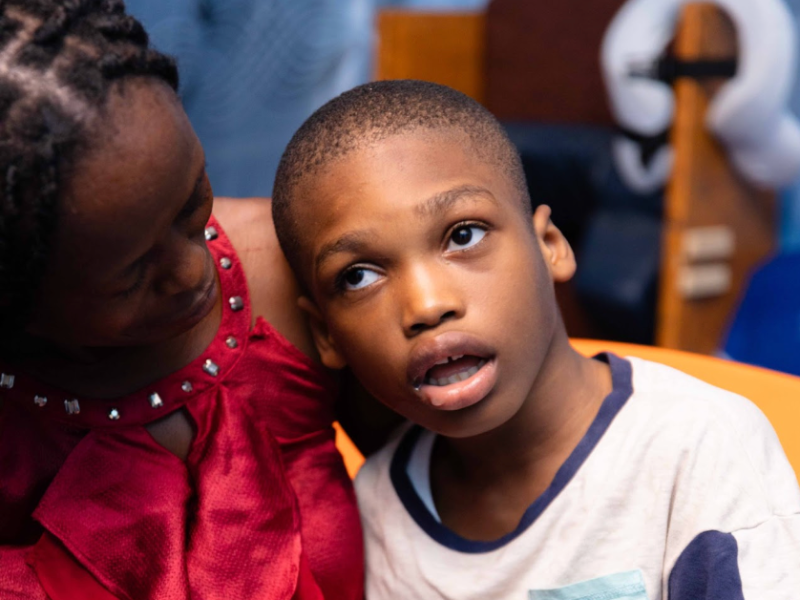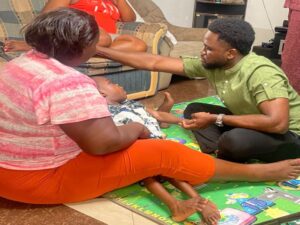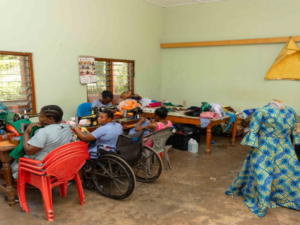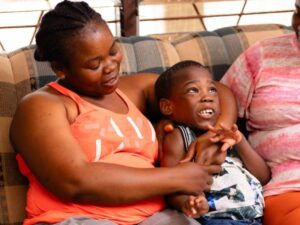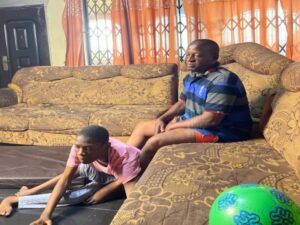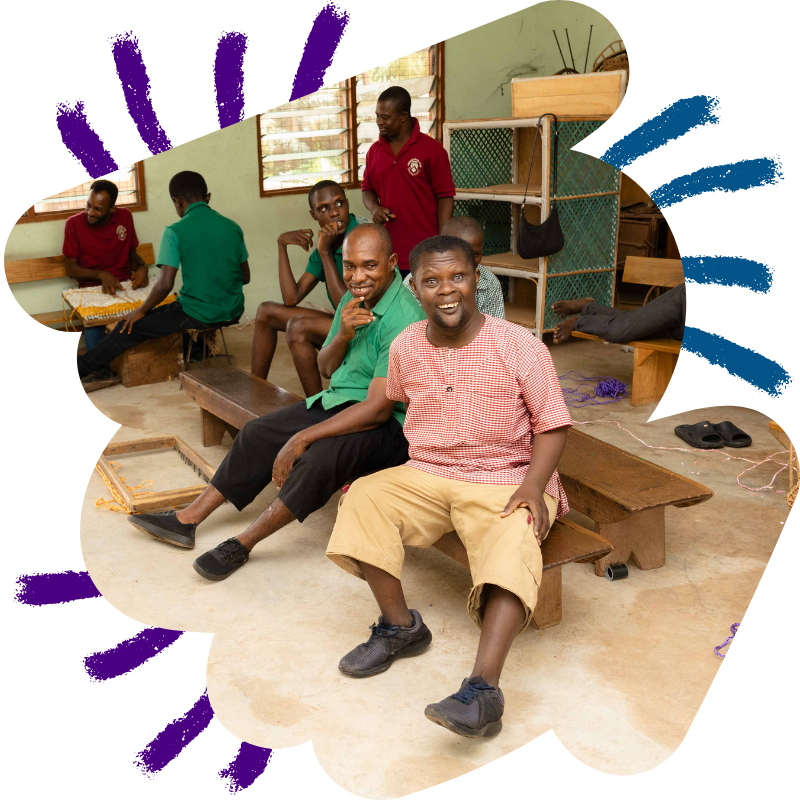Monica, a young Ghanaian woman, faces significant challenges raising her son, Michael, who has cerebral palsy. Saddened by his condition, Monica has to perform all his daily tasks, such as brushing his teeth, bathing, and feeding him. This constant care puts an immense strain on her.
Initially, an unnamed woman helped Monica arrange for some therapy at home, but due to financial constraints, she had to discontinue it. Frequent visits to the Okomfo Anokye Teaching Hospital became financially unsustainable, and the advice to see a neurologist proved too expensive. This left Monica to manage Michael’s care alone.
Michael’s communication is minimal. He barely responds to inquiries and cannot express preferences for food or other choices. Occasionally, he tries to recite numbers and the alphabet with his mother, making a considerable effort when he is in a good mood. On other days, he does not participate at all. Monica has been trying to enroll him in a speech therapy program but has not been successful.
Constantly carrying Michael has taken a toll on Monica’s health. She experiences waist pains and other complications, worsened by the lack of a car and funds for transportation. Monica lamented that Michael has not had therapy or medication for a long time because she used to pay the therapist GhS100 per session, an expense she can no longer afford. Her last visit to the hospital emphasized the need for therapy, as Michael was unresponsive. Monica noted that he shows improvement with consistent therapy sessions.
Despite these hardships, Monica remains dedicated to her son’s well-being. She realizes that therapy significantly benefits Michael and hopes to resume it as soon as possible. Her story highlights the challenges faced by parents of children with special needs and underscores the urgent need for accessible healthcare and financial support for families like hers.

